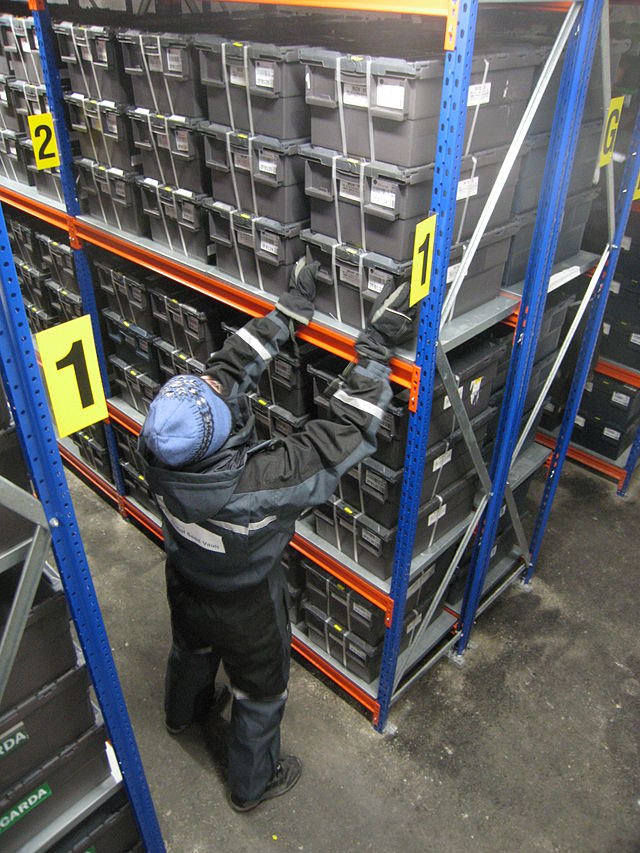Loading AI tools
A knowledge ark (also known as a doomsday ark or doomsday vault) is a collection of knowledge preserved in such a way that future generations would have access to said knowledge if all other copies of it were lost.
This article needs additional citations for verification. (December 2015) |
Scenarios where access to information (such as the Internet) would become otherwise impossible could be described as existential risks or extinction-level events. A knowledge ark could take the form of a traditional library or a modern computer database. It could also be pictorial in nature, including photographs of important information, or diagrams of critical processes.
A knowledge ark would have to be resistant to the effects of natural or man-made disasters in order to be viable. Such an ark should include, but would not be limited to, information or material relevant to the survival and prosperity of human civilization.
Other types of knowledge arks might include genetic material, such as in a DNA bank. With the potential for widespread personal DNA sequencing becoming a reality, an individual might agree to store their genetic code in a digital or analog storage format which would enable later retrieval of that code. If a species was sequenced before extinction, its genome would still remain available for study.[1][2]

An example of a DNA bank is the Svalbard Global Seed Vault, a seedbank which is intended to preserve a wide variety of plant seeds (such as important crops) in case of their extinction.[3]
The Memory of Mankind project involves engraving human knowledge on clay tablets and storing it in a salt mine.[4] The engravings are microscopic.[5]
A Lunar ark has been proposed which would store and transmit valuable information to receiver stations on Earth. The success of this would also depend on the availability of compatible receiver equipment on Earth, and adequate knowledge of that equipment's operation.[6][7]
The Arch Mission Foundation sent the Lunar Library, a 30 million page knowledge ark designed to survive for millions or billions of years in space, to the moon on the Israeli Beresheet spacecraft in 2019.[8] The spacecraft experienced a crash landing. However, the library likely survived intact.[9]
The Phoenix Mars lander, which landed on surface of Mars in 2008, included the "Visions of Mars" DVD, a digital library about Mars designed to last for hundreds or thousands of years.[10][11]
On February 22, 2024, the Arch Mission successfully landed a Lunar Library on the Moon, on the Intuitive Machines IM-1 mission's Odysseus lander.[12]
- In 2020 science fiction book Ready Player Two, a spaceship named Vonnegut was launched to Proxima Centauri which also functions as a knowledge ark since it contains backups of humanity’s cultural materials, such as a standalone copy of the virtual universe OASIS which they call ARC@DIA.
Wikiwand in your browser!
Seamless Wikipedia browsing. On steroids.
Every time you click a link to Wikipedia, Wiktionary or Wikiquote in your browser's search results, it will show the modern Wikiwand interface.
Wikiwand extension is a five stars, simple, with minimum permission required to keep your browsing private, safe and transparent.